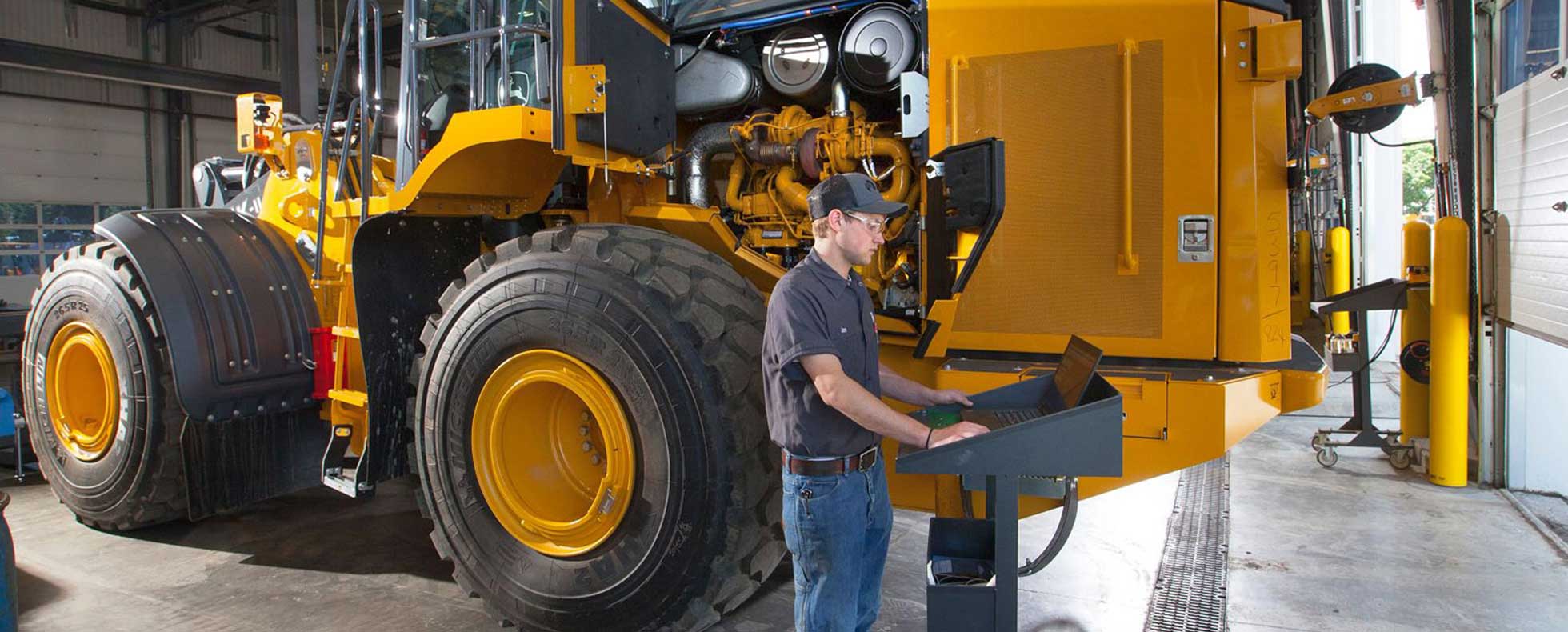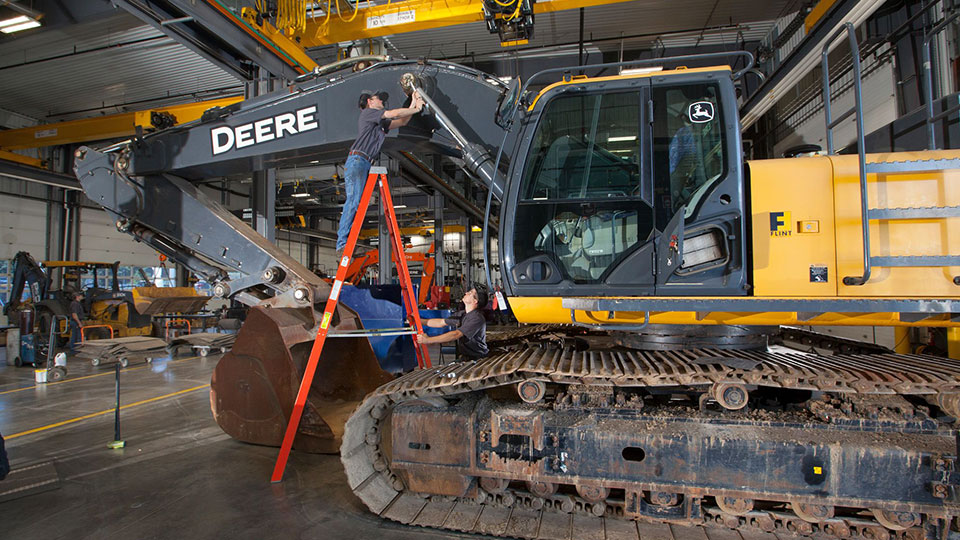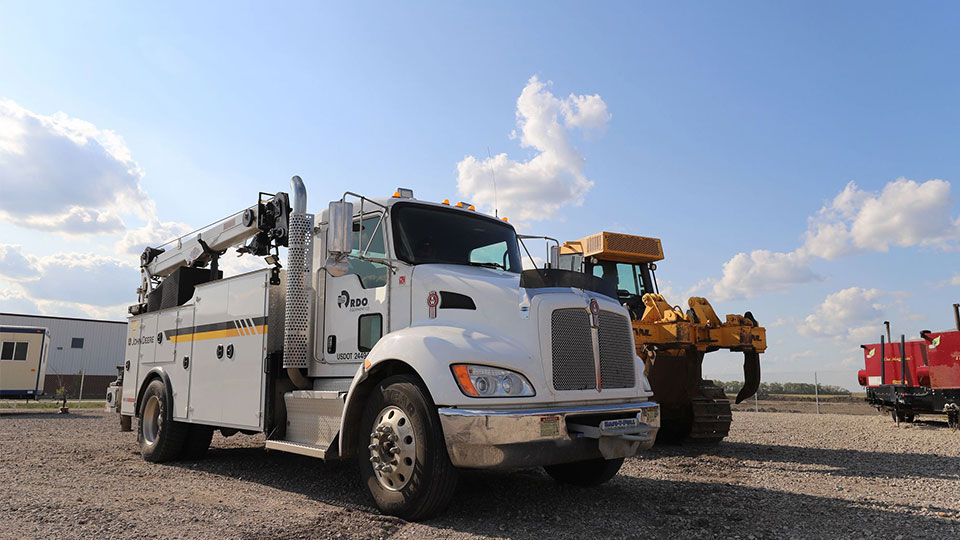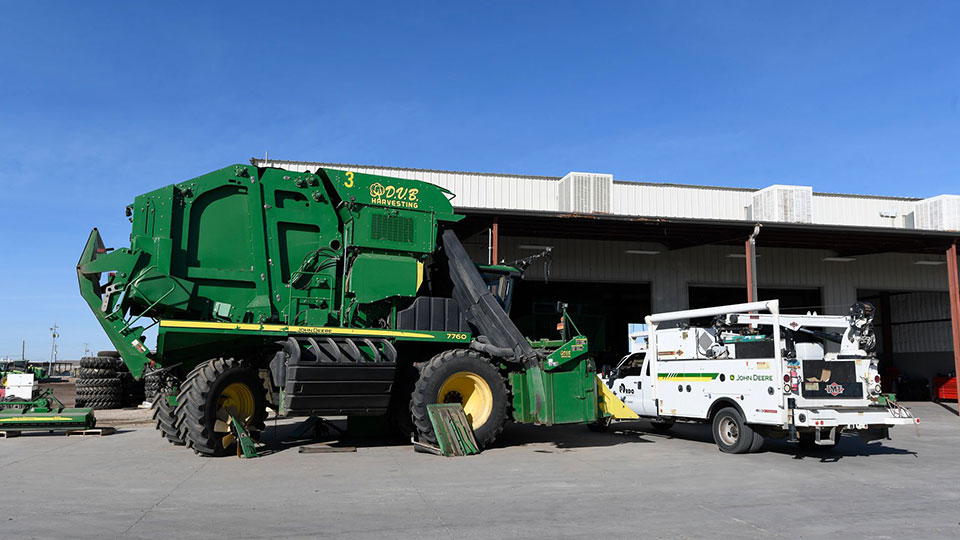
If you’re a diesel mechanic wondering where your career should go next, you have plenty of options. You could work for a heavy equipment dealership, on an over-the-road trucking fleet, at a diesel service shop or for a company that manufactures diesel-powered equipment. The list goes on.
The place you decide to work, however, should meet the expectations you have for an employer and offer the opportunities you want.
As a mechanic, you often can join a company’s shop team (working on equipment in the same location every day) or the field/mobile department.
These are great options, and many people have built excellent careers in both. But which is best for your skills, interests, values and goals? This is an important question to answer as you look for your next opportunity.
RDO Equipment Co. employs technicians in the shop and the field. We understand there are differences between these roles and that although one could be great for some, others might not like it. You deserve to have all of the information when deciding whether to settle into a service shop or hit the road in your next role.
We’ve provided a rundown of the differences between being a shop technician and a field technician — whether it’s at RDO or somewhere else.
This includes what skills you’ll need for each, what it’s like to work in these roles and why some people choose one over the other. We’ll also give you some tips for making this decision.
Service technicians, also called diesel mechanics or diesel technicians, primarily perform repairs on machinery from within the bay(s) of a service shop or some other location. Though shop techs might travel to another location as required, they typically work out of the same location every day.
As a service technician, you’ll be assigned repairs to complete alongside other shop mechanics. In these roles, there are usually other service technicians around to troubleshoot with and ask questions.
Working as a service technician can be a very rewarding job. Not only do you get to help keep customers (and your company) up and running, but no two days are necessarily the same. Although you’ll be clocking in at the same spot daily, being a diesel mechanic means there’s always something new to learn, investigate and solve.
Working specifically in the shop environment means you’re never alone. If you have questions, there will certainly be people around to answer them. Since they’re in close proximity, shop technicians can learn from shadowing others or become mentors for less-experienced mechanics. There’s a sense of camaraderie in most shop environments.
The amount of experience you need to be a service technician in a shop setting varies. At RDO, for example, our shop technicians may be interns (learning the trade for the first time) as well as industry veterans with decades of experience. By and large, technicians enter the shop environment first before becoming mobile or field technicians. If you’re new to diesel mechanics, this environment might be a good fit for you.
Sign Up: Service Technician Monthly Newsletter
Become a more profitable, successful mechanic with insights and resources sent to your inbox every month.
The technician role at a dealership, store or service shop requires many soft skills (communication, time management, organization, etc.) and technical mechanic skills.
The best shop mechanics have a solid grasp of the technical, mechanical, hydraulic and electrical systems of the equipment they’re repairing. Additionally, high-performing technicians always aim to increase their knowledge in key areas to expand their skill set.
Here’s a list of tips for succeeding as a diesel mechanic.

Compared to a field technician role, working from a shop location provides a bit more predictability and stability.
In this position, you work in the same environment every day.
Where field technicians may perform jobs at a hundred different locations, in the shop environment, you don’t have to deal with extreme weather elements (heat, cold, rain, snow, etc.) or the unpredictability of uneven surfaces — like dirt or gravel.
This role is often more predictable in terms of the equipment you work on and the repairs you’re doing. For example, a technician may get really good at repairing a certain type of machinery, like John Deere combines. In the shop, they may be able to fix these more regularly than they would out in the field.
Beyond this, the environment of the shop can feel less pressure-packed since you’re not performing repairs in front of operators and other outside stakeholders.
Here are some other reasons why someone may choose to work in the shop over out in the field:
Getting out of the service bays and into the field is an aim of many diesel mechanics. These technicians do many of the same things shop workers do, but on the side of the road or at sites like construction areas and farm fields.
If you’re looking for a job where you can be independent and create tons of value for customers, this could be your best fit.
When you’re a field technician, no two days are ever the same.
While you will be working as a technician — troubleshooting, examining machines and performing repairs — this won’t be done at the same location very often. This can be exciting for many techs.
You’ll also be the face of your organization with customers and out on your own a lot of the time. That means it’s important to be an expert mechanic who’s not afraid to meet new people every day. Field mechanics typically spend a good portion of time commuting to and from job locations/
Related: Working as a Field Service Technician at RDO Equipment Co.: Pros, Cons and Considerations
To perform mechanical analysis and repairs outside of the shop — with nothing but your support truck for assistance — you need to be an experienced technician.
On average, successful field technicians have done five or more years working in the shop before making this jump. That said, this all depends on your skills, knowledge and abilities. Some people are capable of making this transition quicker.

These roles are suited for confident, competent service mechanics. To be successful in this role, you should be an expert in heavy equipment mechanics and capable of problem-solving on your own.
In addition, field technicians typically have these qualities:
Related: Field Service Technician Skills: 6 Skills You Need
Like a technician who works in the shop, each field technician plays a crucial role in the success of their company.
While this job is not for everyone — some people could be great field techs yet prefer the shop environment — it’s an excellent fit for many.
Here are some reasons why you might decide to become a field technician:

In the end, you can’t make a wrong decision here. As you try to decide your next step, consider your goals and what you value in a job.
If you don’t have the necessary experience (3-5 years), you’re probably not ready to be a field technician. If you do and you’re interested in making this jump ask yourself, “How do I get the most fulfillment when I’m at work?”
If your answer is being independent and making a lot of money (and you don’t mind some unpredictability and longer hours), maybe the field is right for you.
Alternatively, if you want a more stable environment where you can develop your talents, go to work and come home at the same time every day and live a balanced life, consider the service shop route.
This depends on your situation. It could help to ask someone you know for their advice, especially if they’ve been in your shoes before.
Finally, if you’re unsure, do more research — watch videos, read articles and listen to podcasts on this topic. This will help you better understand which job could be right for you. Of course, if you have any questions, don’t hesitate to contact us.
RDO is proud to employ more than 1,000 full-time service technicians in more than 80 locations in the U.S. This includes shop-based mechanics and technicians who work out in the field. Learn more about our service technician careers.
If you’d like to join a growing organization where you’ll be paid fairly, receive quarterly profit sharing and get continuous training, find an open position near you today.